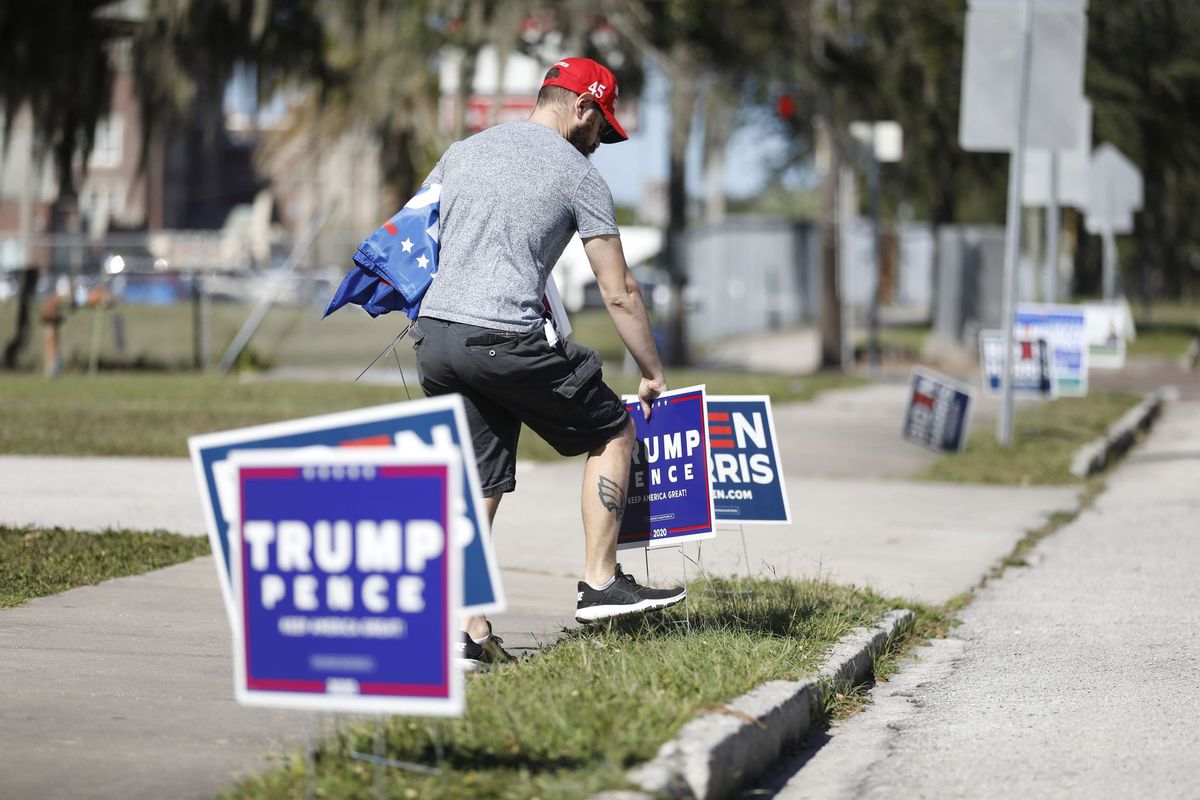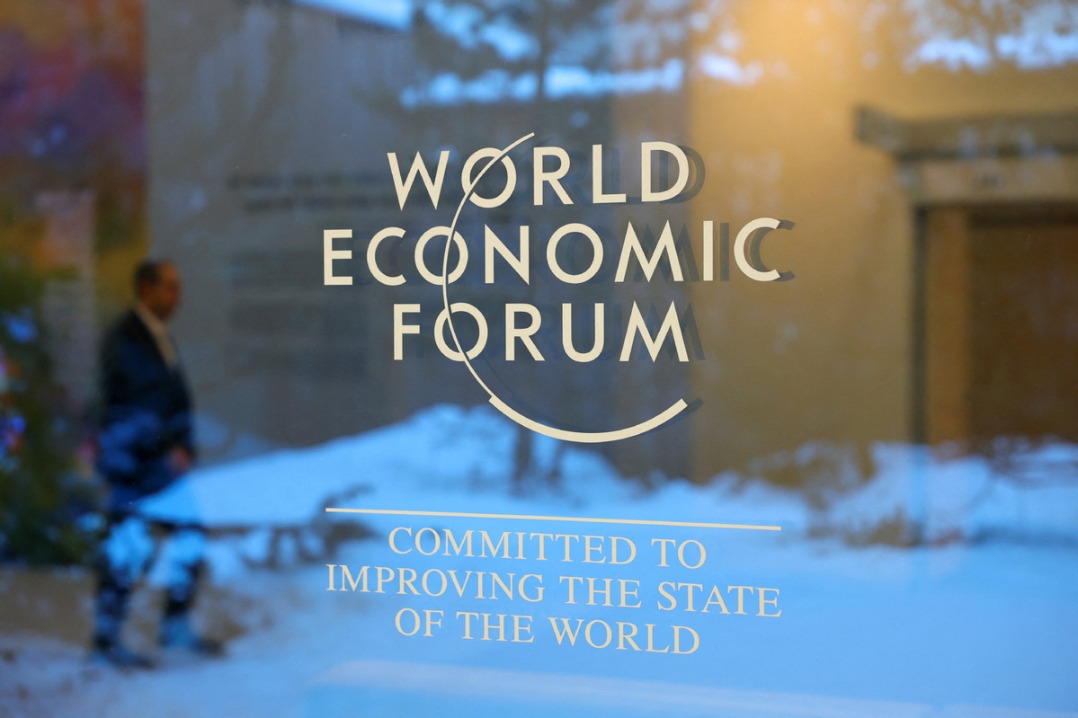Not all $14b spent on election was worth it


When it comes to elections, money can't always buy love.
In the case of the campaign for the White House, the massive war chest amassed by Democrat Joe Biden could ultimately prove to be money well spent as he leads President Donald Trump by 50 electoral votes, with some states still counting ballots.
According to the Center for Responsive Politics, the total spent on American elections in 2020 was expected to reach $14 billion, with Democratic candidates and groups overwhelmingly ponying up the most. The figure is roughly double of what was spent in the 2016 elections.
In various contests around the country, however,the heavy spending did not always produce the desired results.
The center, based in Washington DC, describes itself as a nonprofit, nonpartisan research group. It tracks the impact of money and lobbying on elections and public policy.
"The Center previously estimated the election would see nearly $11 billion in total spending. But an extraordinary influx of political donations in the final months — driven by a Supreme Court battle and closely watched races for the White House and Senate — pushed total spending past that $11 billion figure with weeks yet to go before Election Day," said the center's analysis on opensecrets.org.
"Even amid a pandemic, everyone is giving more in 2020, from ordinary individuals making small donations to billionaires cutting eight-figure checks to super PACs."
Biden was on track to become the first billion-dollar fundraising presidential candidate, having amassed $938 million through Oct 14, according to the report. Trump raised $596 million during the same time frame.
"Ten years ago, a billion-dollar presidential candidate would have been difficult to imagine," said Sheila Krumholz, the center's executive director.
Kentucky and South Carolina, however, showed that more money doesn't guarantee outcomes.
Former Marine Corps fighter pilot Amy McGrath brought in $88 million by mid-October for her Democratic campaign for the US Senate in Kentucky, compared with her opponent, incumbent Senate Majority Leader Mitch McConnell, who raised $55 million.
She also spent $10 million more — $30.69 million to McConnell's $20.28 million.
The figures were from the Federal Election Commission.
McConnell, who has infuriated Democrats with his handling of Supreme Court nominations, culminating in the swearing-in of conservative Justice Amy Coney Barrett eight days before the presidential election, won his seventh term Tuesday with 58 percent of the vote,
For McGrath, almost 97 percent of her campaign donations came from outside Kentucky, with people associated with the University of California at the top of the donor list. Harvard, Stanford and the University of Kentucky were in the top 20 as well.
McConnell got 91 percent of his campaign money from out of state.
In metropolitan-area donations, New York and California opened their wallets for both, but more than twice as much for McGrath.
Contributors in New York City, Los-Angeles-Long Beach, and San Francisco combined gave McGrath more than $5.62 million. McConnell brought in $2.46 million from New York and LA-Long Beach.
Senator Lindsey Graham of South Carolina, chairman of the Senate Judiciary Committee and another Republican who drew the wrath of Democrats for his role in Supreme Court nomination hearings, managed to win a fourth term despite his Democratic opponent Jamie Harrison holding a fundraising advantage of $108 million to $70 million.
"Help me. They're killing me moneywise," Graham said in a Fox News interview in September.
Graham won reelection by 10 percentage points.
In an effort to take control of the Senate, Democratic candidates raised $809 million compared with Republicans' $494 million.
As of Thursday, the two major political parties held 48 seats apiece for the next Senate, the control of which may not be decided until January — by two runoff elections in Georgia.
In the House of Representatives, in nine of the most competitive races, Democrats outraised GOP candidates by more than $3 million each. Of the six contests that have been called so far, Republicans have won five.
The Democrats' disappointing performance has led to some rumblings over whether House Speaker Nancy Pelosi should still hold the gavel.
Biden got sizable donations from the securities and investment industries, with record donations from lawyers and educators, the center said.
Bloomberg LP gave Biden $57.5 million. The billionaires behind Netflix, SlimFast, Hyatt hotels, LinkedIn and Star Wars all donated various amounts to Biden's election bid, according to Forbes.
Trump's largest donor was the America First Action SuperPAC, with $10 million apiece coming from Timothy Mellon, chairman and majority owner of Pan Am Systems, and Kelcy Warren, co-founder, chairman and CEO of Energy Transfer Partners, a Texas company that runs the Dakota Access Pipeline.
The Preserve America SuperPac, which also supports Trump, got $75 million from casino mogul Sheldon Adelson, CEO of the Las Vegas Sands Corp.
Billionaire Michael Bloomberg, who ran unsuccessfully for the Democratic presidential nomination this year, spent $115 million of his own money to help Biden get elected in Florida, Ohio and Texas—$100 million of that in the Sunshine State.
Trump ended up winning the three prized states.
Bloomberg's bucks did pay off in Colorado, where he helped Democrat John Hickenlooper defeat incumbent Republican Cory Gardner for the US Senate.
Bloomberg, a former mayor of New York who was first elected in the city in 2001 as a Republican, also spent $1 billion on his own White House run.
Much of the transfer of wealth to Democratic political candidates and groups has come from women and out-of-state donations.
"More than 1.5 million women have donated to federal committees, accounting for 44 percent of all donors. That's up from 37 percent in 2016," the center said. "In the 2020 election, women have given $2.5 billion through mid-October, up from $1.3 billion throughout the entire 2016 election."
Also, women giving more than $200 apiece have donated nearly $1.3 billion to Democrats and about $570 million to Republicans.
The political inclination of the donors has shifted dramatically since the Supreme Court's Citizens United decision in 2010 that ruled political spending was protected speech, the center said.
"When Citizens United was decided 10 years ago, conservatives were the quickest to jump on the newly permissible outside groups as a way to facilitate huge donations," said Sarah Bryner, center research director.
"Now, liberal groups have more than made up the difference and are taking advantage of every opportunity available to get their message out."


































